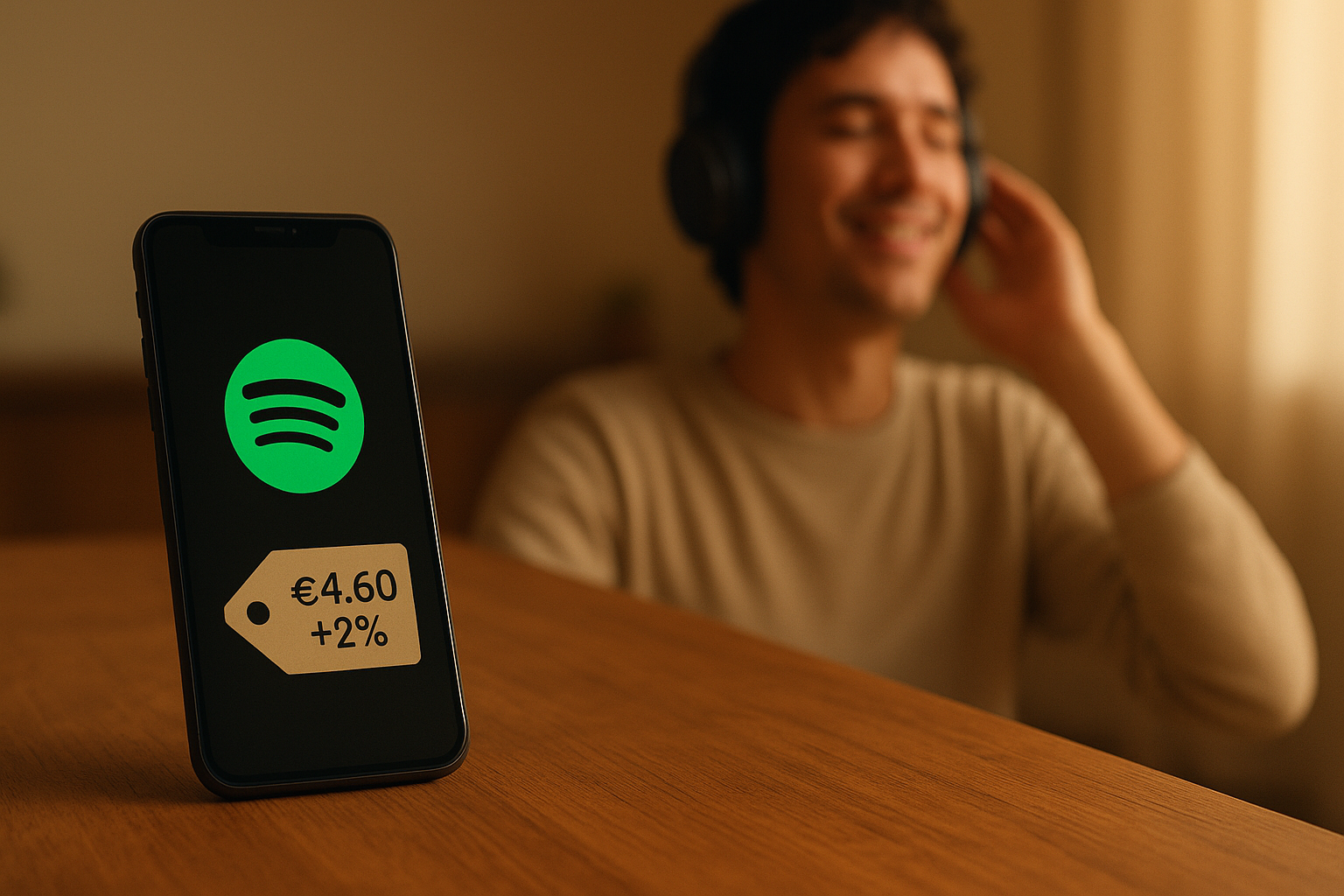In what might be the least surprising business insight of the decade, Spotify CEO Daniel Ek has discovered that customers don't particularly enjoy paying more money for the same service. Revolutionary stuff, I know.
During the company's recent earnings call, Ek defended Spotify's relatively cautious approach to subscription price increases. "It's a lot better to keep the customer around," he explained, than to squeeze them for a few extra dollars and risk losing them entirely. This philosophy—which I'd categorize as blindingly obvious—actually stands out as something of a radical position in today's subscription-obsessed economy.
We're living through what feels like the golden age of subscription price inflation. Netflix seems to announce price hikes with almost seasonal regularity. Disney+ managed to double its price tag in just three years. And Amazon Prime has been creeping upward while hoping nobody notices.
The standard playbook for these services (what I've seen companies follow repeatedly during my years covering tech) follows a predictable pattern: hook users with low initial prices, build dependency, then gradually turn up the heat. Most executives bet that the hassle of switching—combined with our collective laziness—will keep subscribers paying even as they grumble about their monthly statements.
Ek, however, seems to be following a different model. Call it "sustainable extraction" if you want to sound clever at your next dinner party.
Spotify did raise prices last year, but with noticeably less aggression than its competitors. The results speak for themselves—the company reported 236 million premium subscribers in Q4, representing a healthy 15% year-over-year jump. Perhaps more tellingly, average revenue per user increased by 2% to €4.60 ($4.98).
Here's the thing, though (and I've discussed this with industry analysts who agree): streaming audio plays by fundamentally different rules than video. When Netflix jacks up prices, they can point to "Stranger Things" and its $30 million per episode budget as justification. When Spotify raises prices... what exactly are they pointing to? The same Taylor Swift album you can hear on Apple Music or Amazon?
In the audio streaming world, the core product is essentially identical across platforms. The differentiation comes from more subtle elements—the recommendation algorithms, playlist curation, user interface, and increasingly, exclusive podcasts and audiobooks.
Ek understands this competitive landscape. "We want to ensure that we deliver such a superior experience that not only are our consumers staying with us, but we can also then increase price over time," he said, in what might be the most sensible statement I've heard from a tech CEO this quarter.
There's another wrinkle worth mentioning. Unlike Netflix, which keeps most of its subscription revenue (after production costs), Spotify has to hand over approximately 70% of its take to music rights holders. When Spotify increases prices, most of that additional cash flows straight through to labels and publishers, not to its own bottom line.
This raises a broader question about the entire subscription economy—just how elastic is consumer demand for these services? For years, companies have enjoyed extraordinary pricing power. We all got used to paying for subscriptions during pandemic lockdowns, inflation made price increases seem normal across the board, and many consumers had the disposable income to absorb the hits.
But the landscape is shifting. I've interviewed dozens of consumers who report subscription fatigue setting in. The average U.S. household now juggles between 5-10 subscription services across various categories. At some point, people start making hard choices about which services to keep.
In this environment, Spotify's more measured approach might prove prescient rather than timid. By maintaining a reasonable value proposition while competitors push ever upward, Spotify could position itself as the service customers keep when they start culling their digital entertainment budget.
Wall Street wasn't entirely convinced by this strategy—Spotify's shares actually fell despite beating subscriber growth expectations. But that probably says more about investors' addiction to margin expansion than any fundamental flaw in Ek's thinking.
The irony here is almost delicious. By resisting the temptation to aggressively raise prices now, Spotify might actually create more pricing power for itself later. If competitors drive users away with their hikes, those disgruntled music lovers will need somewhere to go. Sometimes the tortoise really does win the race... a concept that seems increasingly foreign on quarterly earnings calls.
Look, maintaining reasonable prices to build customer loyalty isn't exactly business school rocket science. But in today's corporate climate, such restraint almost qualifies as contrarian thinking.
I'm still paying for my Spotify subscription that I originally signed up for back in 2015. And while I occasionally wonder if I should shop around, the thought of rebuilding all my playlists somewhere else is just... exhausting. Which is exactly what Ek is counting on.
